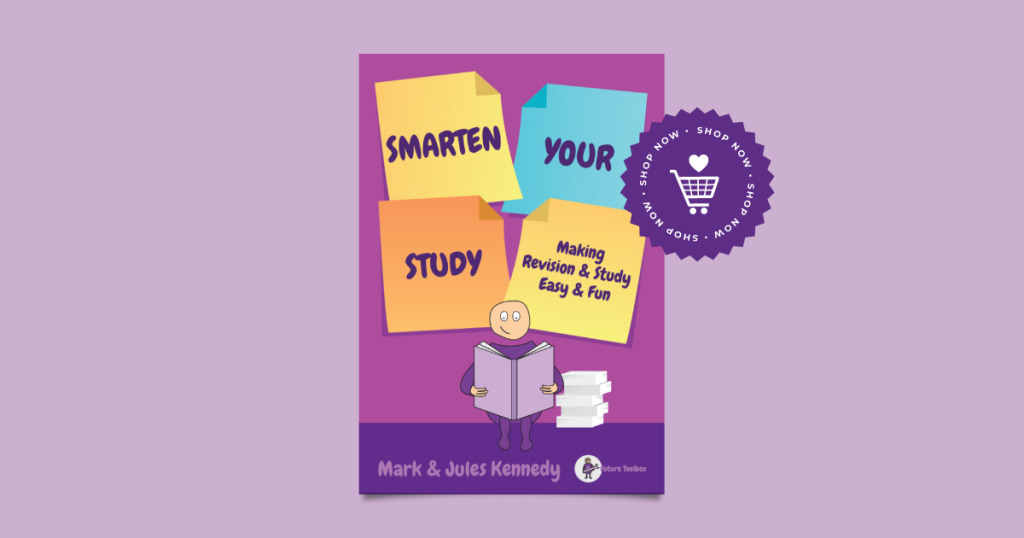
Creating a Vision for Your Future
Seeing the ideal future can come to some people as naturally as looking out the window, with the ideal career and pathway
We’re about to enter exam season and hundreds and thousands of students will be navigating their last few weeks of revision. It’s quite a stressful time for everyone involved, so let’s take a look at how to make those final preparations for the big day. Even if you haven’t begun to revise yet, fear not; it’s not too late to start. These techniques will help you improve your memory, so give it a go and you’ll be on track to achieving the results you’re aiming for!
Mind maps allow you to organise information in a way that makes sense to you. They help you make connections between different topics whilst being able to see the bigger picture. It’s an easy way to visualise information. You can use different colours and drawings that help you remember key facts. Not only does this help you break down complex subjects into manageable chunks, but it also lets you explore relationships between different concepts, leading to a deeper understanding of the subject.
If you don’t have time to make a mind map, looking at old ones you’ve created is a great way to review a topic. By following the branches, you can quickly refresh your memory and identify the areas you need to focus on studying.
Bringing a touch of creativity and fun to your revision process by using the story method. Our brains are naturally wired to remember narratives, I mean, just think about how easy it is to recall the plot of your favourite movie, or the storyline of a beloved book. By crafting a story around the facts that you need to learn, you can create a context that makes those facts more meaningful and easier to recall.
As you visualise the plot, characters, and settings, the information will start to take on another meaning. Suddenly, you’re not just memorising data; you’re thinking about a sequence of events.
We then have physical hobbies, much more about getting your hands dirty. Some of these hobbies can overlap with creativity, like sewing or carpentry. But the act of using your body as much as your mind can be a great benefit, as well as developing new skills such as crafting or performing physical feats. Sports, exercising, and training yourself for a goal like a marathon, are all great ways to achieve a healthy body and mind. Maybe it’s not about doing something with your body but exploring and visiting new places. Setting yourself in a new environment, away from home or the workplace, can help calm your otherwise racing mind.
Mnemonics are clever tricks that help you recall information by associating it with something easy to remember, like a catchy phrase or a familiar word. Acronyms are a type of mnemonic where you take the first letters of a series of words and create a new word or phrase.
Mnemonics and acronyms can turn a jumble of facts into something memorable and manageable. Try creating your own acronyms or using other, more popular ones. You’ll be amazed at how much easier it is to recall information and how much more confident you’ll feel heading into your exams.
The chunking memory strategy helps you remember large amounts of information by breaking it down into smaller groups. Chunking works well if you’re trying to memorise things such as long lists or combinations of numbers.
For example, if you were trying to memorise all the bones in the human body, you could use this technique. You’d start by focusing on one area, like the hand, and learn all the names. Then you could then move on to memorise all the bones that are in the arms. When you try to recall the information, you can think about the different areas to jog your memory.
One of the best aspects of chunking is that it teaches your brain to create connections and build associations between bits of information. This can come in handy when you’re trying to memorise something quickly.
One simple yet effective technique to boost your memory is reading out loud. By verbalising the text, you’re engaging multiple senses – you’re seeing the words on the page and hearing your voice. This dual engagement can make the information stick more firmly in your mind.
It’s like you’re creating a conversation with the content, which can make it feel more real and easier to remember. Plus, speaking the words out loud helps you understand the rhythm and flow of the material, making it more engaging. If you find yourself getting stuck or feeling distracted, give reading out loud a try. You might be surprised at how much clearer the concepts become and how much more confident you feel in your knowledge.
Practising using old exam papers is a great way to learn a lot in a short period of time. “But none of these questions will show up in the exam!” we hear you say, but that is not the point. Sometimes, it is not about what you know but how you present that knowledge. In exams that focus on writing, such as English or History, the way you write your answer and hit those points is crucial. So, with that in mind, studying previous exam papers is a great way to get some practice!
Looking at past papers allows us to familiarise ourselves with what we need to do, and how we do it on the day. When you get into your exams, you’ll feel a lot calmer about the layout of the paper. They also give context to what knowledge you need to know and what is not so priority, allowing you to study more effectively.
When you have a busy schedule, it can be difficult to keep on top of everything. With that being said, skim reading your notes until you fall asleep at your desk out of sheer exhaustion is probably not the best way to prepare for an exam.
If you’re going to cram for your exams effectively, it’s essential that you remain positive and focused. Think about revision strategically; what topics are most important for you to learn? Focusing on these will help you recall key information in the short term.
Even when it’s last minute, don’t push yourself too hard. Taking regular breaks and getting a reasonable amount of sleep will help you to concentrate. Sleep has also been proven to improve your memory, so make sure you’re getting enough!
The pressure of exams can be tricky to deal with and cause a lot of stress. (You can read more about coping with academic stress here). This can make you doubt your abilities; it’s also really distracting and can affect your ability to focus. Take a step back and try to relax… You are more capable than you think, so believe in yourself!

If you still find yourself unsure of the best strategies for studying, take a look at our book Smarten Your Study. It is full of activities and tips to help students get into the right mindset to prepare for their exams. By having a little more fun, you will ultimately build up resilience, relieve stress and get on the path to success!
For more information on this topic
Follow us on social media!

Seeing the ideal future can come to some people as naturally as looking out the window, with the ideal career and pathway

Sleep training is something that everyone should do! It impacts nearly every aspect of our lives, from our mood and energy levels

For many people, January is a bit like the Monday of the year. It’s cold, the weather is gloomy and it definitely